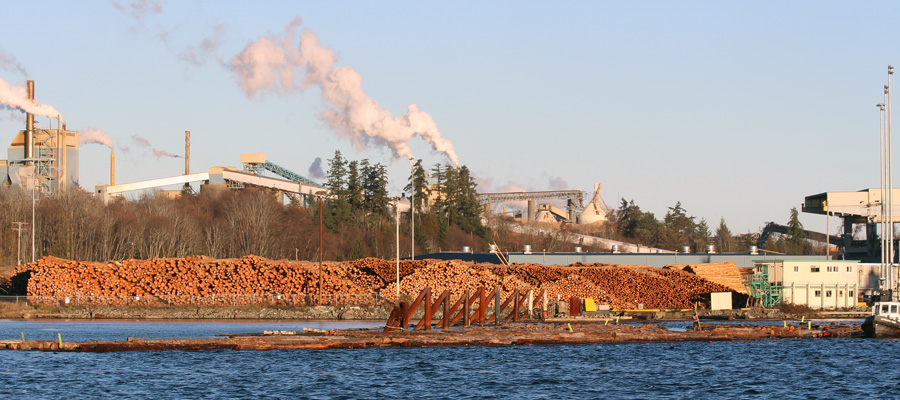With a thud on my door, it arrived …
… The Labour Day issue of the Vancouver Courier. It even had a story I was interested in, a lead article on local food, and another on the sustainability of fisheries. Good on small-scale independent journalism, I thought, until the moment I took off its rubber band to reveal an inch-thick pile of glossy inserts.
Sure, all newspapers are guilty of this to an extent. But the sheer mass of this week’s issue, delivered unsolicited to my doorstop, makes me want to scream. And I meant thud — I had to get up and look out the window to comprehend what had just happened. I’m sure there are some people out there who like to look through the flyers for bargains or coupons, but I’m betting almost everyone puts them straight into the recycling bin, regardless of whether they go on the read any of the actual paper or not.
Intrigued by the two pounds or so of waste inserts, I began to scan the paper, not for additional stories of interest but for just how much news was in this thing. My tally: about 16 and a half pages of content in a paper of 48 pages (and I’m including the cover, table of content, “KidzBeat” back-to-school section and horoscopes, so the actual news content is much thinner). In a world without the Internet perhaps this glut of advertising would be the price to pay for good local news, but I scan more online content than this each morning before I leave the house.
The Courier is a free paper, so advertising must cover 100% of the costs of paper, printing, delivery and profit for the owners. At some perverse level, this venture makes economic sense, but in any real sense it is an astonishing waste of resources that makes no environmental sense whatsoever. And while the Courier generally has good coverage of local issues and Vancouver City Hall, I’m guessing we’ll never see any critical stories from them on London Drugs, Shoppers’ Drug Mart, Safeway or any of the other ten insert providers.
Now, we can recycle newspapers but the tragedy only worsens when we look deeper. In spite of the abundance of pulp and paper mills of BC, most of the municipal newspaper recycling gets sent to Asia for processing. And the fact that municipalities are on the hook for handling this waste is a cost to taxpayers not borne by the publisher. Minimally, newspaper waste ought to be fully recycled in BC and paid for by the producers. Until we do these papers should be banned.
Don’t even get me started on the Yellow Pages …


